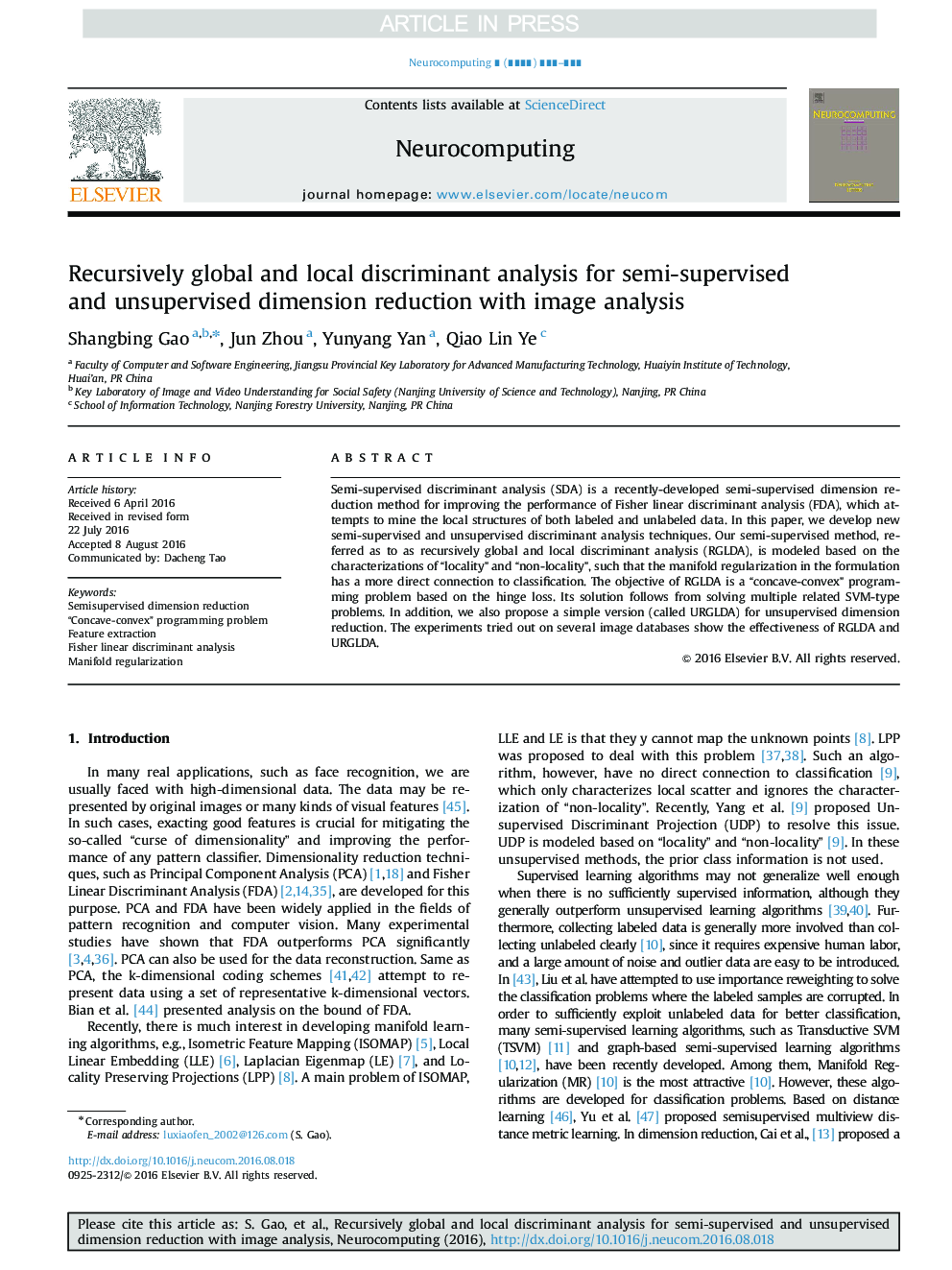| Article ID | Journal | Published Year | Pages | File Type |
|---|---|---|---|---|
| 4948381 | Neurocomputing | 2016 | 12 Pages |
Abstract
Semi-supervised discriminant analysis (SDA) is a recently-developed semi-supervised dimension reduction method for improving the performance of Fisher linear discriminant analysis (FDA), which attempts to mine the local structures of both labeled and unlabeled data. In this paper, we develop new semi-supervised and unsupervised discriminant analysis techniques. Our semi-supervised method, referred as to as recursively global and local discriminant analysis (RGLDA), is modeled based on the characterizations of “locality” and “non-locality”, such that the manifold regularization in the formulation has a more direct connection to classification. The objective of RGLDA is a “concave-convex” programming problem based on the hinge loss. Its solution follows from solving multiple related SVM-type problems. In addition, we also propose a simple version (called URGLDA) for unsupervised dimension reduction. The experiments tried out on several image databases show the effectiveness of RGLDA and URGLDA.
Related Topics
Physical Sciences and Engineering
Computer Science
Artificial Intelligence
Authors
Shangbing Gao, Jun Zhou, Yunyang Yan, Qiao Lin Ye,
